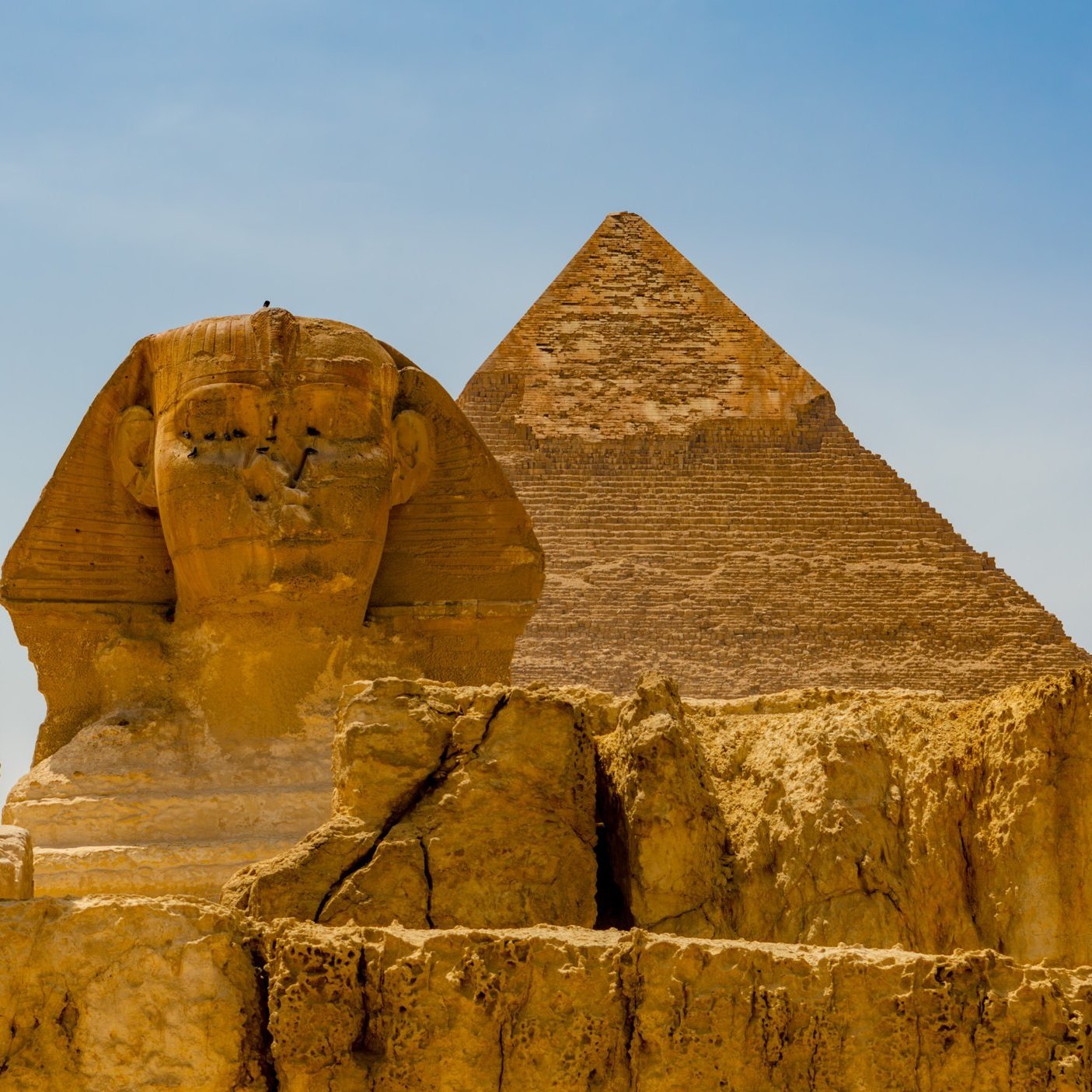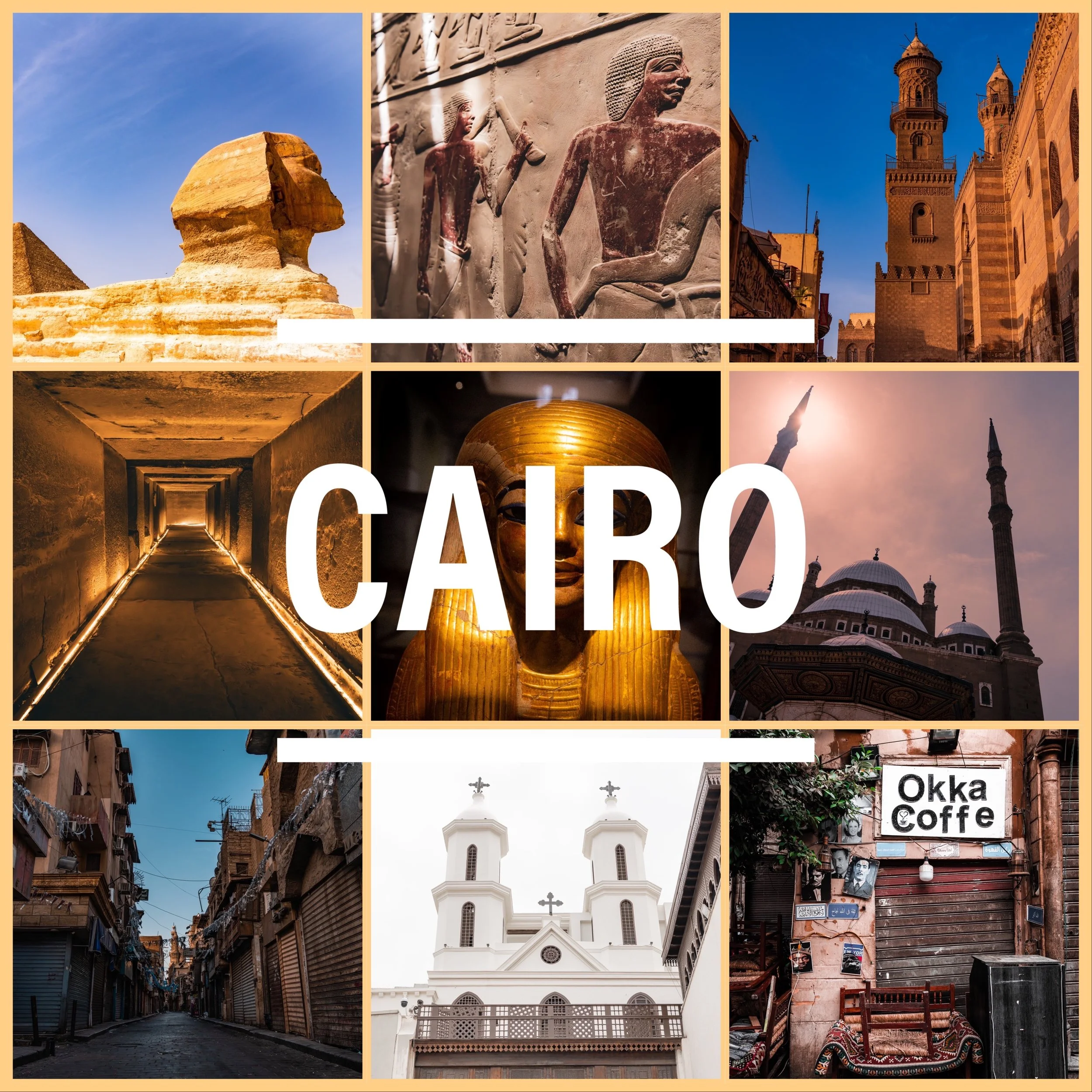Deep Life Reflections: Friday Five
Issue 11 - Ancient Awakenings
Hello and welcome to my weekly email newsletter, Deep Life Reflections: Friday Five.
Each Friday, I share five things I’m enjoying, thinking about, and find interesting, which you might also find useful.
If you have a friend, family member, or colleague who you think would also enjoy Deep Life Reflections, simply copy, paste and send them this subscription link:
https://www.deeplifejourney.com/subscribe
Here’s this week’s Friday Five, inspired by my recent trip to Cairo.
1. What I’m Reading
A Line in the Sand by James Barr.
Living in the Middle East, I feel it’s important to understand and appreciate the region’s history and heritage. A Line in the Sand covers a critical period of 1915-1949 where the British and French carved up the region after the collapse of the Ottoman Empire and her territories. The title refers to the secret treaty drawn up in 1916 by Mark Sykes and Francois Georges-Picot (The Sykes-Picot Agreement). They took a map and literally drew a line in the sand from the Mediterranean to the Persian frontier, remodeling the Middle East in line with their two countries’ own imperialist aspirations (influence, trade, and oil). Britain would take control over what would become modern-day Iraq, Kuwait, and Jordan. France would take control over Syria and Lebanon, along with parts of southeastern Turkey.
Using declassified papers from the British and French archives, Barr vividly presents the deceitful, espionage-filled struggle between Britain and France to rule the Middle East, featuring diplomats, spies, soldiers, and statesmen. The arbitrary boundaries and disregard for ethnic and religious groups led to a wave of violence over the next thirty years, and contributed significantly to the present-day instability of the region.
Reading the book, I’m reminded of the quote from journalist Norman Cousins: “History is a vast early warning system.”
[Footnote: I took this book to Cairo with me over the Eid al-Fitr holidays. I stayed in Islamic Cairo, the tightly packed historic district of the city, exploring its narrow streets and bustling markets. With its storied past, it was a perfect setting to enjoy a few chapters each day and gain a deeper appreciation of the historical context.]
2. What I’m Watching
Lawrence of Arabia (1962). Directed by David Lean.
They don’t make them like this anymore. A three and a half hour masterpiece from British director, David Lean, restored to its full cinematic glory after its painstaking 1989 restoration and 70mm re-release. The film chronicles the life of British officer T. E. Lawrence, played by Peter O'Toole, during World War I. Set in the Arabian Peninsula, the film follows Lawrence's transformation from an enigmatic outsider to a key figure in the Arab Revolt against the Ottoman Empire.
Almost all the movement in the film goes from left to right. David Lean said he did this to emphasise that the movie was a journey. Lawrence is at the heart of this journey, but he’s not written as a routine action hero. He is a complex, flawed character. The desert is his stage and the vast, harsh, and captivating landscape has never looked better. You feel transported there, to another time and place.
Lawrence of Arabia has one of my all-time favourite scenes—the iconic match-to-desert cut: the seamless transition from the extinguished match to the breathtaking expanse of the desert and the rising sun. It’s storytelling and filmmaking at its very best. Watch the scene here.
If you’re a lover of film, experiencing this 70mm version on a big screen should be on your shortlist of things that must be done in your lifetime. And I haven’t even mentioned the epic soundtrack. Like I said, they don’t make them like this anymore.
3. What I’m Contemplating
Visiting Cairo's Great Pyramids and witnessing the treasures of King Tutankhamun's tomb, I contemplated the pharaohs' awe-inspiring legacies, built to ensure a worthy passage into the afterlife. Five thousand years later, our quest for immortality has evolved and lies in modern legacies, shaping the future through intellectual, social, and creative contributions.
But what about at the individual level—what do we leave as an “offering” when our time comes to an end? People often talk about their own legacies, but that might be too grand an ambition. Perhaps we need humbler ambitions: striving to do right by others, offering support without judgment. Embracing such aspirations may be our equivalent of those ancient treasures, a call to our own awakening.
4. A Quote to note
“Preservation of one's own culture does not require contempt or disrespect for other cultures.”
Cesar Chavez, American Labour Leader & Civil Rights Activist
5. A Question for you
How have visits to historically and culturally significant locations reshaped your perspective on life?
Before You Go Bonus: My photography: Capturing Cairo.
Explore my visual diary of the ancient city and its treasures and secrets. (This week’s cover photo is from this collection.)
Want to share this issue of Deep Life Reflections via text, social media, or email? Just copy and paste this link:
https://www.deeplifejourney.com/deep-life-reflections/may-5-2023
Don’t forget to check out my website, Deep Life Journey, for full content on my Pillars, Perspectives & Photography.
And you can read all previous issues of Deep Life Reflections here.
Thanks for reading and have a great weekend.
James


